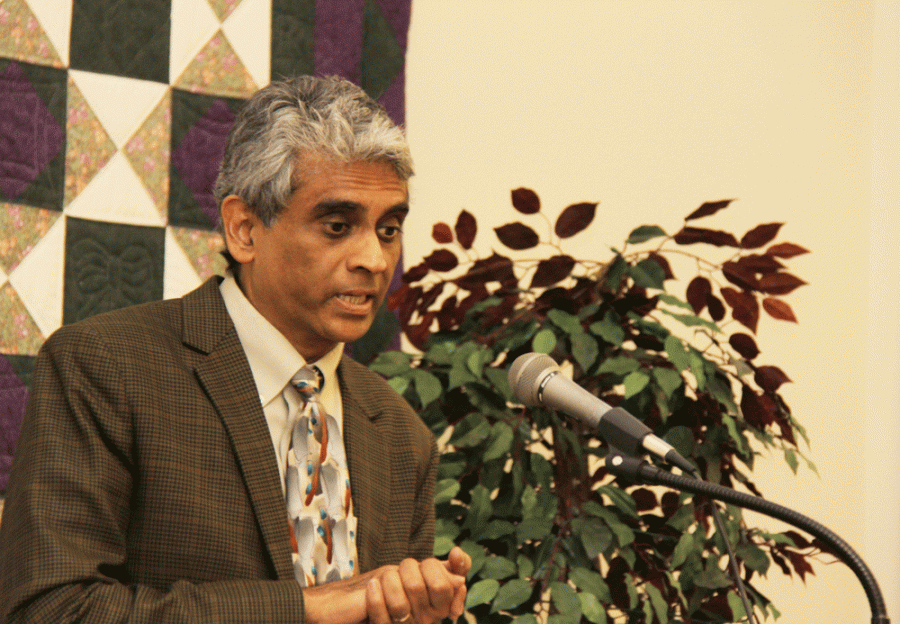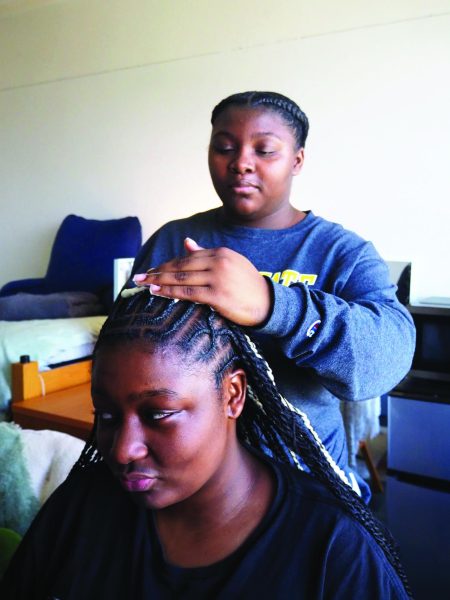‘Making the foreign less foreign’
Fred de Sam Lazaro, Under-Told stories director, reiterates the importance of international journalism
Photo courtesy of College Relations
Fred de Sam Lazaro a PBS correspondent for NewHour and director of Under- Told stories visited WSC yesterday. The mission of Under-Told stories is a collaboration of international journalism and learning. He also spoke at the Wayne Senior Center, held an open forum on Tuesday as well as the two open sessions.
February 5, 2014
“The human spirit and stamina are something unbelievable when you really think about.”
PBS correspondent Fred de Sam Lazaro spoke to a packed house yesterday morning at 11 a.m. in Gardner Auditorium about the Under-Told stories project, a collaboration between international journalism and learning, of which he is director.
The founding of Under-Told stories resulted from Lazaro’s background as an Indian immigrant and journalist. In his career, he found that there were few stories about India and the surrounding countries, partly because they were just difficult to do without knowledge of that area. He grew up in India and spoke several of the languages and decided to put that to use.
“The key lecture in all this is, find out what in your background has informed your passions,” he said. “What is it you like? I like telling stories. What way I can use those most effectively? Find out where that work comes from. That’s something.”
So the motto of Under-Told stories is “making the foreign less foreign.”
Often, Lazaro said, the problem in reporting international news is that because it’s foreign, it’s irrelevant. Thus, Under-Told stories tends to focus on news from other parts of the world and works to introduce them into the classroom as real-world examples, therefore making these stories relevant.
Under-Told stories, he said, is a generally broad definition, but they focus on mostly international stories that fade from Western headlines, such as the devastating typhoon that hit the Philippines and the collapsing of a sweatshop factory building in Bangladesh, which killed over 1100 people, last year.
The project also covers stories that never make it into the headlines, such as the three hurricanes and a cholera outbreak that have hit Haiti since the earthquake a couple of years ago. So much was made of the hurricane, with aid coming from around the world, but few would even consider other disasters.
“Human suffering is not meant to bring people to the screen. If it’s a major disaster maybe people will be attracted to it. But chronic disasters can be a downer,” Lazaro said. “Who wants to tune in to anything that’s going to bring your mood down, especially when those people don’t look anything like you can relate to. In the news business, we like to think about this as the spinach in your diet. You need to know it. How do we make a decent recipe for spinach?”
Lazaro believes Under-Told stories is solving this problem by focusing on the strong characters making changes around the world. People such as Mechai Viravaidya who has helped Thailand stabilize it population using family planning and erasing the stigma for using condoms through comedy.
This stabilization has helped Thailand rise from poverty and become a more middleclass country. Lazaro is a PBS Correspondent with NewsHour, beginning in 1985 and a Senior Distinguished Fellow at the Hendrickson Institute for Ethical Leadership at Saint Mary’s University of Minnesota. He has directed films for the documentary series Wide Angle.









